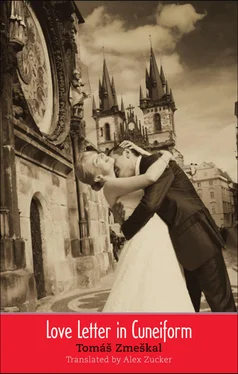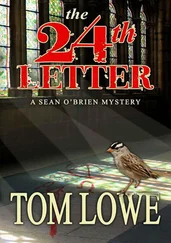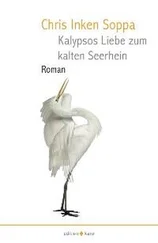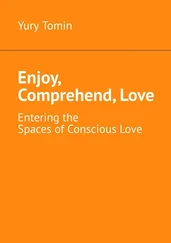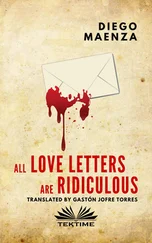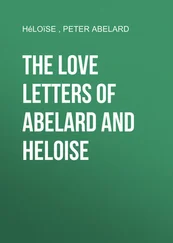“You see the letter, don’t you? So I guess so. Besides, whenever I hear the bell I just shout that I’m coming but slowly so she’d better wait. And she does. What else can she do?” said Aunt Anna. Then she pokily shuffled her way out to the mailbox in the hall, where her daily ration of two newspapers was awaiting her.
Květa studied the envelope. It seemed a shame to tear it. She took a pair of scissors and slit it open. Inside was a letter on heavy handcrafted paper embossed with a watermark of the state seal and a wreath of linden leaves. Before Květa could finish reading it, Aunt Anna was back with the newspapers. She spread them out on the table and carefully studied the front page. The front page was the best: it had the biggest headlines. Thanks to modernization, the pictures on the front page were printed in color now, which made it easier for her to get an overview. That was the type of progress that seemed truly useful.
“Imagine that, Auntie. Assuming, that is, I’ve understood it correctly. I’ll have to read it through one more time, and I think I’d better give Alice and Kryštof a call.” Aunt Anna fixed her with a look of disgruntlement, having just begun to read an article about a team of researchers who had completed their mapping of the sugar beet genome and claimed that one of its genes was identical to that of humans. She was a little taken aback by the news and didn’t know what to think. Whenever she didn’t know what to think about an article, she circled it in thick red pencil and reread it in the afternoon, by which time she had usually formed a basic opinion. Aunt Anna gave up her disgruntled look, having noticed that Květa wasn’t reacting to it.
“Well, what is it?” she said.
“Imagine that. They’ve given Josef a medal.”
“A medal?” Aunt Anna asked.
“A medal,” Květa repeated.
“What for?”
“Bravery.”
“Bravery?”
“They say here,” Květa said, “that they’re recommending he be decorated for bravery demonstrated during the time of his incarceration, when he risked his own life several times to help his fellow prisoners, and for standing up to totalitarian despotism.”
Aunt Anna calmly removed her glasses, set them down on the newspapers, and said, after a moment, into the silence: “Well, those nincompoops were sure in a hurry. He’s resting in God’s truth now.”
“They say,” Květa said, “that it would be a posthumous decoration. Here: ‘in memoriam,’ dash, ‘for bravery, awarded posthumously.’ If I accept, I’m to contact them in the manner most suitable to me.”
“In the what?” Aunt Anna echoed. “What in heaven’s name do they mean by that?”
“Don’t worry, Anna. I understand.”
“So when are they sending it?” Aunt Anna asked.
“I don’t think they are.”
“No?”
“No.”
“Then how are you going to get it?”
“I guess I’ll have to go there. No, wait, they say if I accept it on his behalf, that either I can go, or a designated individual, since I’m his widow, can go in my place. They say daughter, grandson, or family friend.”
“Family friend, hmm?” Aunt Anna said. “And where to?”
“The castle, Anna. The castle in Prague.”
“Oh, I see. So that what’s-his-name would give it to you? You know who I mean.” But Květa was still a little bit thrown by the whole thing, so she wasn’t giving Aunt Anna her full attention, even though, as usual, her aunt was struggling fiercely for it.
“Oh, what do you call him, I can’t remember now. You know, the scooter king.”
“Yes, that’s the one,” said Květa. All of a sudden she couldn’t remember anything at all, she was so moved by the fact that they were giving Josef a medal for what he used to mention, only occasionally and evasively, as playing boy scout.
Autumn was approaching at a rapid clip. The national holiday, commemorating the founding of Czechoslovakia at the end of World War I, and All Souls’ Day were as usual both in the same week, but Květa had never paid much attention to it before, until this year, now that Josef had died. She drove out to the cemetery in Lhotka three times a week, and when Kryštof found out that his grandmother was going to the cemetery and didn’t even bother to stop in and say hello, he gave her a scolding, put a set of keys in her hand, and demanded she come by their place for dinner or tea at least every once in a while. The cemetery in Lhotka was on a slope at the bottom of a hill. At the top of the hill was the church, and when most of the leaves fell off, after the first brief and as usual unexpected cold snaps, Květa took pleasure in raking them off of not only Josef’s grave, but the surrounding ones as well. Sometimes she would make the walk up the hill to the church, sit down on the low stone wall, and stare out at the gently rolling autumn landscape. Occasionally a few tardily flocking birds would appear that she hadn’t managed to identify yet, and the more visits she paid to Josef’s cemetery the less surprised she was that he had left Prague and moved here. It wasn’t until Kryštof pointed out that the date of his grandfather’s posthumous decoration was nearing that Květa looked at the calendar and realized she had promised Mrs. Langmajerová, who was in charge of the cemetery, that she would be there that day instead of her. A repairman would be coming to fix the pump that supplied the whole cemetery with water. They tried to talk her out of it, but Květa made up her mind to stay in Lhotka and sent Alice to accept the medal in her place. When her daughter came home with the medal, Květa put it, and the box it came in, in the display case that Josef and Kryštof had brought to Prague. Everyone had expected Květa to be happy about the honor, but she acted as though it meant nothing to her. Sometimes she would absentmindedly stroke Kryštof on the back. Sometimes she would praise Libuše and her grandson for the way they took care of the house, but she always felt most at home with her memories.
On St. Cecilia’s Day, in late November, she sat down on a bench in the cemetery and didn’t wake up until after dark. She was chilled to the bone, and the stars spread across the sky looked magnificent, even if she didn’t know a single one of their names. She walked straight to the train from the cemetery, and when she got home she felt even sicker than she had initially thought. Even tea with rum and onion juice squeezed into it, Aunt Anna’s recipe that had carried her father through the trenches on the Italian front in World War I, didn’t help. When the local doctor came and examined her, she immediately ordered Květa to be taken to the hospital with pneumonia. Alice took over caring for Aunt Anna, dividing her time between work, the hospital, and her aunt. Aunt Anna was saddened, not because she didn’t trust medical science — in fact just the opposite, it was one of the things in which her faith had gradually grown — but because she could glimpse a hint of resignation and weariness in Květa’s eyes. Nothing can top the experience of a nearly hundred-year-old woman, she liked to say, although what she never added was that many of her friends had also had eyes full of resignation and weariness a few months before she had seen them for the last time. Everyone would like to be able to see into the future, she reflected. Or at least nearly everyone. But if the poor souls only knew what awaited them, some of them might wish they hadn’t. She was feeling lonely, so when cousin Jiří was given a car for work and offered to bring her over for dinner every other day, nobody was as grateful for it as she was. If she’d learned anything in all her years it was that nothing fends off death more effectively than the foolishness and reckless optimism of youth. And so several times a week the cousin came and picked her up in his car. Eventually he got used to her excruciating slowness, and it pleased her to no end having a bright red car parked in front of her building. One day after dinner, when Jiří was out of hearing, Aunt Anna boasted to Alice that she had discovered the last remnants of vanity in her dotage. After all those years spent nowhere but inside her apartment and in and around the neighborhood park, she was amazed at how the city had changed. New buildings. Repaired facades. So many cars and renamed streets. Eventually those rides became the highlight of her week. “You know, the strange thing is, Ali,” she said one day, “I noticed that your cousin inflames even me, an old lady, with lust. Of course not in any way that you would understand. You’re still too young for that.”
Читать дальше
